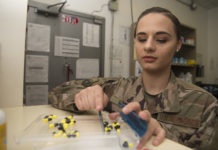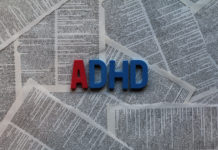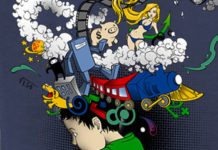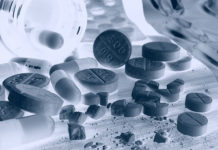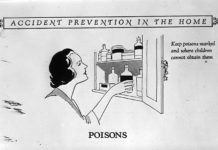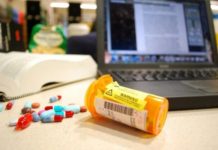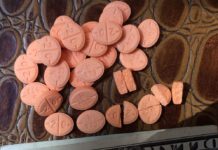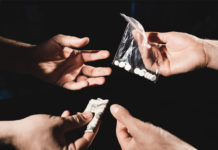Textbooks Provide Misleading Information on the Neurobiology of ADHD
When it comes to ADHD, some researchers suggest that medical textbooks provide inaccurate and misleading information.
Psychotropic Medications Serve as Powerful Tools for U.S. Military, Imperialism
Ethnographic research sheds light on extensive psychopharmaceutical use by soldiers in post 9/11 U.S. wars.
Children Taking ADHD Drugs More Likely to Take Antidepressants as Teens
Adhering to a commonly prescribed medication for ADHD in children is associated with higher chances of being prescribed antidepressants in adolescence.
Study Reveals Inconsistency in ADHD Diagnostic Determinations
Researchers compare differences between research and clinical diagnoses of ADHD and explore the consistency of clinical determinations over time
Adderall Use Associated with Increased Risk of Psychosis
Twice as many teenagers with ADHD experienced severe psychosis when taking Adderall, as compared to Ritalin, according to a new study.
Growing Evidence for the Link Between ADHD Diagnosis and Age at School Admission
Researchers detect a striking relationship between the month of school enrollment relative to peers and patterns of ADHD diagnoses in a large sample of elementary school students throughout the US.
About 1 in 100 Children Treated with Ritalin Experience a Serious Adverse Event
A recent Cochrane review has found that serious adverse events occur for about 1% of children and adolescents treated with Ritalin.
Rates of ADHD Diagnosis and Prescription of Stimulants Continue to Rise
Two new articles find that rates of ADHD diagnosis and stimulant prescription continue to rise all over the world.
Hallucinations Reported as Side Effect of ADHD Medication
Hallucinations and other psychotic symptoms have been reported after methylphenidate (Ritalin) treatment for ADHD.
Large Increase in Poison Control Calls for Children Taking ADHD Drugs
New data shows that calls to US poison control centers have increased significantly for children taking stimulant ADHD drugs.
Can Education Level Predict Prescription Drug Misuse in Young Adults?
A new study examines the extent to which patterns in prescription drug misuse and substance use disorder symptoms can be predicted by education level
Researchers Can’t Predict Whether Childhood ADHD Will Impact Adult Functioning
New research has found that a childhood ADHD diagnosis is not predictive of adult functioning in boys.
Stimulant Drugs Have Adverse Effects on Cognitive Functioning in Healthy Students
Study of students without an ADHD diagnosis finds that stimulants (Adderall) have little impact on cognitive performance.
Poor and Foster Care Children More Likely to be Diagnosed and Treated with Psychiatric...
Study details Medicaid-insured birth cohort’s exposure to psychiatric medications and mental health services.
Despite the Evidence, Overprescription of Stimulants Continues
A new study finds that stimulant prescribing rates to children continue to rise despite the well-established evidence documenting overdiagnosis of ADHD and overprescription of stimulants.
The Next Deadly Epidemic: Adult ADHD and Stimulants?
I refuse to be one of the doctors that contribute to the next deadly epidemic. I see too many similarities between stimulants and opiates — they’re both strongly addictive, stimulate our pleasure centers, and have long-term dangerous mental and physical effects. And they both “work” in the short term without actually fixing anything.
ADHD: Disempowerment By Diagnosis
Giving a diagnosis of ADHD can profoundly disempower students and lead to what psychologists call “learned helplessness.” Isn’t it time for those of us in education to reclaim our profession? Who are the teaching and learning experts? Doctors? Drug companies? We are! And if we don’t stand up—for our students—against disempowering diagnoses and harmful drugs, who will?
Race and Class Affect Teacher Perceptions of ADHD Medication Use
Study uncovers teachers’ attitudes surrounding ADHD medication use and examines the influence of race and social class on teacher beliefs.
CDC Reports Increased Psychostimulant Prescriptions in Women of Reproductive Age
Psychostimulant prescriptions have increased by 344% (from 2003 to 2015) for women of reproductive age (15-44 years old).
Is Binge Eating Disorder Just Another Made-Up Disease?
If a person binges habitually, upon sensing certain stimuli the pancreas prepares the body with insulin, and simultaneously, the stomach prepares by getting more acidic. This means that for many of us, the drive to binge is a physical need. Therapy blames the patient for “bad coping” when all she is doing is responding to her body's signals.
Children Diagnosed with ADHD Younger are More Likely to get Multiple Medications
New research demonstrates that children diagnosed with ADHD at younger ages are more likely than those diagnosed later to receive multiple medications within five years of their diagnosis.
Warning to Parents: Psychiatry is How Kids Get High and Die in the USA
Street drug dealers and stimulant-peddling doctors both get clients high and addicted for profit. So there is really no difference between what they do except that doctors are more ‘successful’ at it, since they enjoy many advantages over illicit dealers and can get away with doing it legally.
Researchers Confirm That Relative Age Impacts ADHD Diagnosis
The youngest children in a class are more likely to receive an ADHD diagnosis than their peers.
Researchers Question the “Adequacy and Legitimacy” of ADHD Diagnosis
A new article, just published online in the journal Emotional and Behavioural Difficulties, presents research suggesting that the diagnosis of ADHD is philosophically inadequate.
ADHD Diagnosis Based on “Illogical Rhetoric,” Analysis Claims
In a philosophically rigorous article, Spanish researcher Marino Pérez-Álvarez examines the logic of attention-deficit hyperactivity disorder (ADHD).


